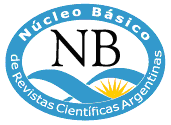 |
 |
PROBLEMAS Y OPORTUNIDADES DEL USO DE INTERNET CON FINES SOCIO- POLÍTICOS. UN ESTUDIO DE CASO: PODER CIUDADANO (PC)
Autor/res: Valeria Falleti
E-Mail: valefalleti@hotmail.com
RESUMEN
Para indagar acerca de las oportunidades y problemas del uso de internet con fines socio- políticos se han estudiado proyectos que se impulsan con distintas aplicaciones de internet (campus virtual, sitio web, base de datos digital, revista digital, etc) para promover el ejercicio de ciudadanía en una ONG. Se introducen debates en torno a internet: si descentraliza o centraliza poder político para arribar a una visión social de internet, centrándose en las condiciones institucionales, sociales y políticas que facilitarían escenarios para la participación. La noción “apropiación social de la tecnología” resultó clave para pensar internet como herramienta social. Se trata de un estudio descriptivo-exploratorio en el que se utiliza metodología cualitativa, en particular el estudio de casos y de comparación de los mismos –Glaser y Strauss- en nuestro trabajo, el portal y los programas on line de Poder Ciudadano.
Palabras clave: use of the internet, on-line participation projects, social appropriation of electronic media, citizenship participation
ABSTRACT
CHALLENGES AND OPPORTUNITIES OF THE USE OF THE INTERNET FOR SOCIO- POLITICAL ENDS. A CASE STUDY: PODER CIUDADANO (CITIZENS' POWER)
To inquire about the challenges and opportunities of the use of internet for socio-political ends, I study different projects that use the internet in order to promote citizenship participation in a NGO (such projects include virtual campus, web site, electronic database, electronic journal, etc.). I analyze the debates regarding hether the internet decentralizes or centralizes political power. My goal is to arrive to a social analytical approach of the internet that focuses on the institutional, social, and political conditions that promote participation. Among the central concepts of this study are such notions as the social appropriation of technology and institutional learning. The research is descriptive and exploratory. It employs qualitative methodologies. In particular, it employs techniques comparative analysis studies (Glaser and Strauss) of the on-line participation projects promoted by Poder Ciudadano.
Keywords: use of the internet, on-line participation projects, social appropriation of electronic media, citizenship participation
Instituto de Investigaciones
Lavalle 2353
Tel/fax:4952 – 5481/ 4952 – 5490
Horario de atención: 10 a 17 hs
E-mail: instinve@psi.uba.ar - anuario@psi.uba.ar
Facultad de Psicología
Universidad de Buenos Aires
Lavalle 2353
Tel/fax:4952 – 5481/ 4952 – 5490
Horario de atención: 10 a 17 hs
E-mail: instinve@psi.uba.ar - anuario@psi.uba.ar
Facultad de Psicología
Universidad de Buenos Aires


